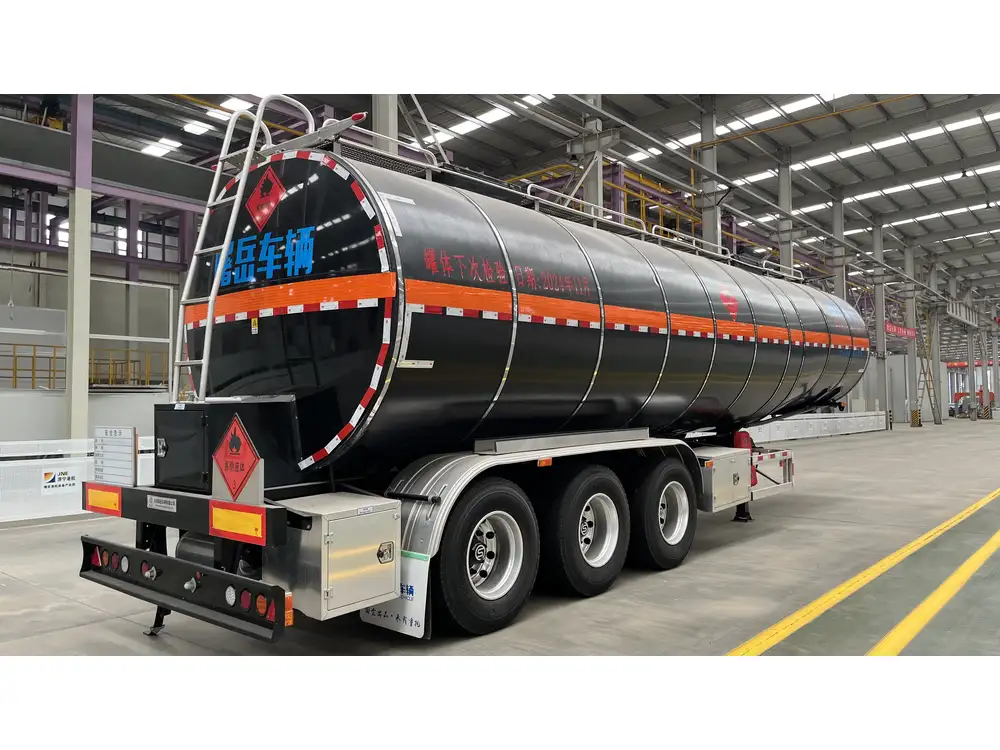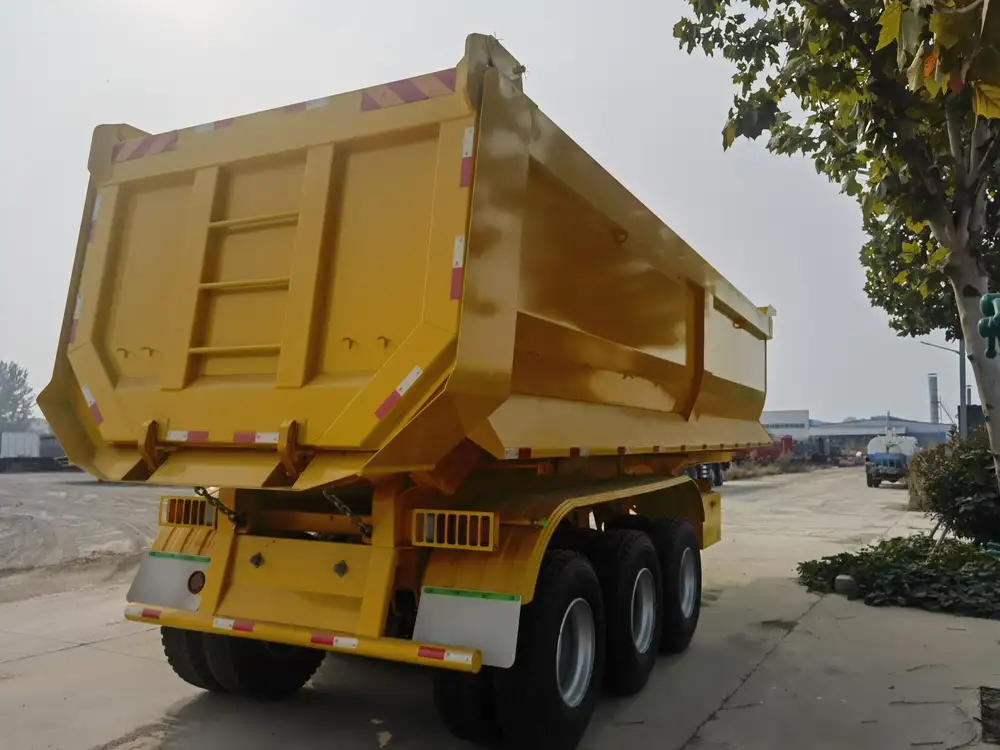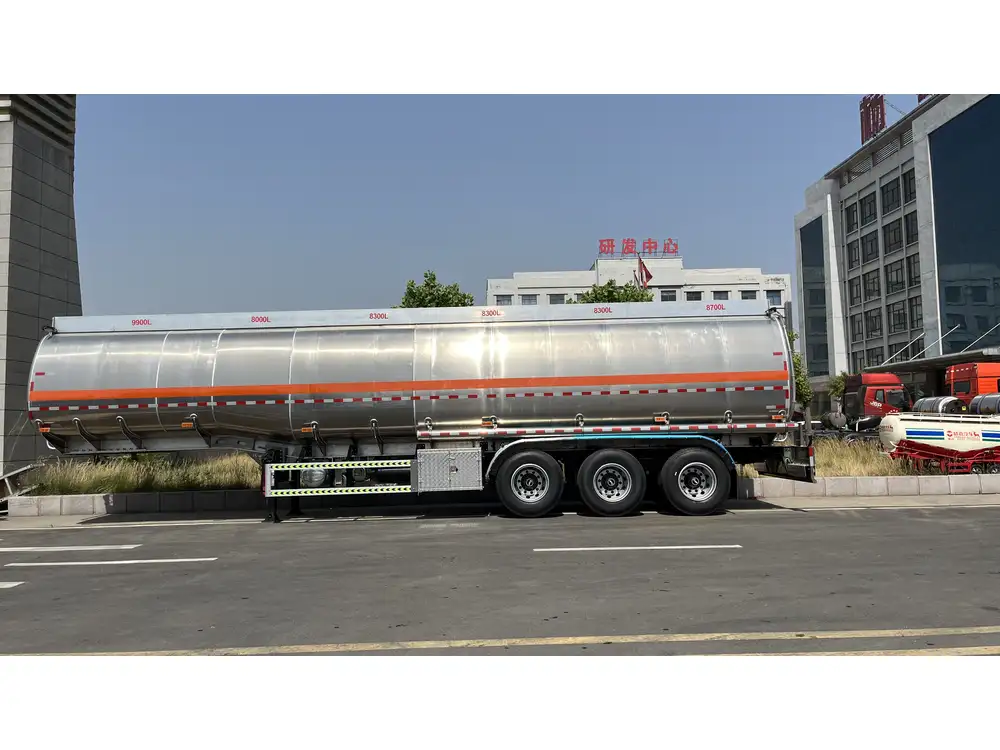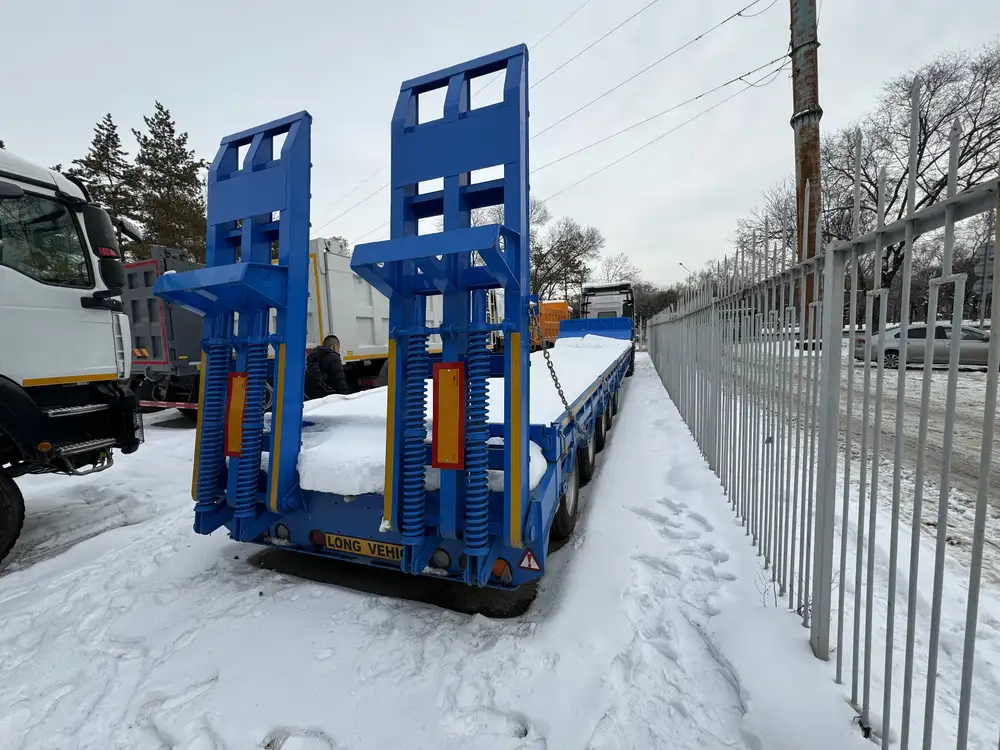When it comes to transporting liquids, the choice of trailer type is critical for efficiency, safety, and compliance with regulations. In the realm of tanker trailers, understanding their dimensions—especially length—is essential for manufacturers, logistics companies, and transport operators. This article delves deep into the specifics of tanker trailer lengths, factors influencing these dimensions, and best practices for selecting the right tanker trailer for your needs.
Tanker Trailer Overview
What is a Tanker Trailer?
A tanker trailer is a specialized vehicle used primarily for transporting liquid cargo. These trailers come in various shapes and sizes, each designed to carry different types of liquids ranging from water and fuel to chemicals and food-grade materials. Understanding the nuances of these trailers can inform better purchasing decisions and optimize logistical planning.

Standard Lengths of Tanker Trailers
The length of a tanker trailer generally varies based on its design and intended use. Here’s an overview of common tanker trailer lengths:
| Type of Tanker Trailer | Standard Length Range |
|---|---|
| Single-Axle Tanker | 35 to 39 feet |
| Tandem-Axle Tanker | 40 to 53 feet |
| Tri-Axle Tanker | 45 to 53 feet |
| Specialty Tankers | Varies significantly |
Single-Axle vs. Tandem-Axle vs. Tri-Axle
Single-Axle Tankers: These shorter trailers are typically more maneuverable and suited for smaller loads, making them ideal for urban deliveries.
Tandem-Axle Tankers: This configuration provides a better weight distribution and increased load capacity, often accommodating various types of liquids.
Tri-Axle Tankers: Offering enhanced stability, tri-axle tankers are preferred for heavier loads and longer trips but have limitations based on road regulations.
Regulatory Considerations
Regulatory frameworks dictate the maximum allowable dimensions for tanker trailers, which can vary from state to state or country to country. Most jurisdictions enforce width limits of 102 inches and height limits of 13.5 feet. However, the length can significantly differ based on specific regulations pertaining to the type of cargo and axle configuration. It’s crucial to familiarize yourself with local regulations to ensure compliance and avoid hefty fines.

Factors Influencing Tanker Trailer Length
Load Capacity
The required load capacity of the materials being transported can dictate the appropriate tanker trailer size. For example, transporting lighter liquids may require a shorter trailer, while heavier substances necessitate a larger, more robust configuration.
Type of Cargo
Different liquids require distinct types of tanker trailers, such as:
- Food-Grade Tankers: Typically longer to accommodate the bulk of liquid food products.
- Chemical Tankers: May be shorter if transporting hazardous materials, which need robust safety features.
- Fuel Tankers: Normally on the longer side to maximize fuel economy.

Transportation Routes
The routes taken during transportation can impact trailer length considerations. Urban areas with tight turns and restrictions on large vehicles often favor shorter trailers, while highway routes can accommodate longer units.
Choosing the Right Tanker Trailer
Determining the right tanker trailer often comes down to specific requirements. Here’s a structured approach to making your choice:
Step 1: Assessing Your Needs
- What types of liquids will you be transporting?
- Different liquids can necessitate different trailer structures.
- What are the average loads you’ll be handling?
- Knowing typical load volumes can help in selecting a trailer with the suitable specifications.
- What routes will you predominantly drive?
- Consider dimensions that allow for smooth navigation of your common routes.

Step 2: Review Local Regulations
- Familiarize yourself with regulations in your area to avoid fines and penalties. For instance, some locations may have specific production-built trailers or unique requirements for trailer length based on their cargo.
Step 3: Supplier Relations
- Establish a relationship with a reputable trailer manufacturer. Quality matters greatly in trailer performance and longevity. Inquire about customizable features that could enhance the efficiency and safety of your operations.
Advantages of Selecting the Right Tanker Trailer Length
Choosing the right tanker trailer length has noteworthy advantages:

Increased Efficiency
A properly sized tanker trailer allows for efficient transportation, helping reduce fuel costs and optimize loading/unloading times. This efficiency cascades down to improved delivery timelines and satisfied clients.
Enhanced Safety
Trailers that are too long for specific routes can pose a risk of accidents, especially in areas riddled with sharp turns or steep grades. Selecting the appropriate length enhances maneuverability and reduces the risk of mishaps.
Compliance with Regulations
Adhering to regulatory requirements not only avoids penalties but also instills trust and reliability in your transport services. Recognized compliance can differentiate your business from competitors.

Practical Applications and Case Studies
To enhance understanding, let’s analyze two scenarios illustrating the importance of selecting the appropriate tanker trailer size:
Case Study 1: Urban Deliveries
A food delivery company operating in a city recognizes it needs a tanker to transport liquid dairy products. The decision was made to invest in a single-axle tanker trailer, measuring 36 feet. This length provided optimal maneuverability, enabling the delivery vehicles to navigate tight urban streets without compromising on load capacity.
Case Study 2: Long-Distance Fuel Transport
For a long-distance fuel transport company, the choice of a tandem-axle tanker trailer measuring 50 feet proved advantageous. The larger length allowed for transporting more fuel per trip, maximizing profit margins while ensuring compliance with highway regulations.

Conclusion: Optimize Your Choices Wisely
Understanding factors that influence tanker trailer dimensions, such as load types, transportation routes, and regulatory constraints, ensures informed decision-making. Selecting the right tanker trailer can lead to increased efficiency, enhanced safety, and compliance with local regulations, ultimately benefitting operational effectiveness.
For businesses engaged in liquid transport—whether it’s food production, fuel distribution, or the transport of volatile chemicals—making informed decisions about tanker trailer length is pivotal. A combination of analytical thinking, regulatory knowledge, and supplier engagement will establish not just an efficient transport operation, but also boost your bottom line.
In essence, as we navigate the world of tanker trailers, let us do so with insight and strategic foresight, ensuring that the choices we make today yield dividends for tomorrow.



